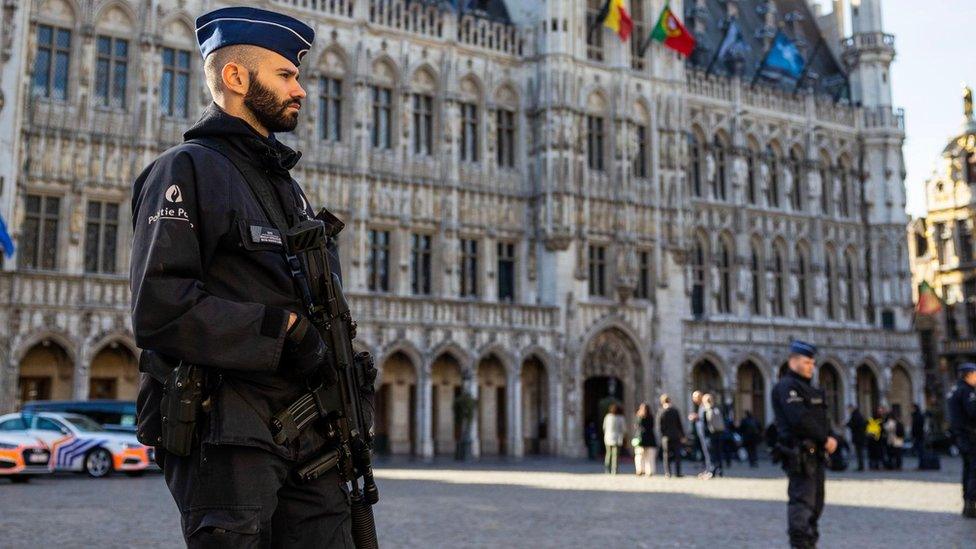EU bids to tighten migration rules after attacks in Arras and Brussels
- Published
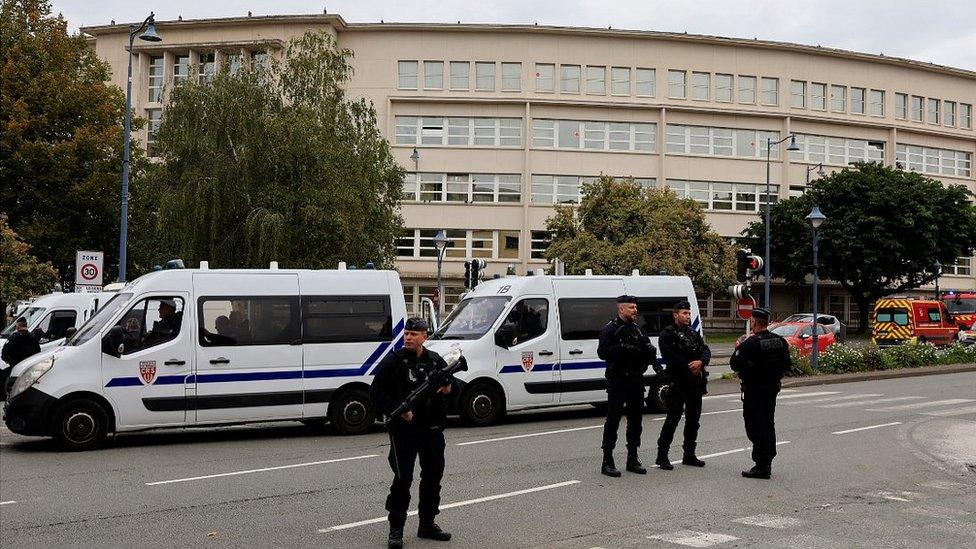
France and other EU countries are on high security alert amid an escalating war between Israel and Hamas militants
EU ministers have urged member states to do more to screen migrants and expel those regarded as a security risk, amid rising concerns over militant attacks.
Interior and justice ministers were meeting after a teacher in France and two Swedes in Brussels were murdered by suspected Islamist militants.
Police across Europe are on high alert in the wake of the Israel-Hamas war.
In France, President Emmanuel Macron has attended the funeral of the teacher fatally stabbed at a school last week.
The service for Dominique Bernard, who was 57, took place in the northern city of Arras. Mr Macron met the family beforehand.
The literature teacher and father of three has been posthumously awarded the Legion of Honour, France's highest civilian decoration.
Dominique Bernard was among several staff who tried to tackle the attacker. Another teacher and a security guard were seriously wounded.
"He was sensitive and quiet. He did not like the sound and fury of the world," Bernard's wife Isabelle, who is also a teacher, told mourners.
The service was broadcast on a screen in Arras's Place des Héros (Heroes' Square).
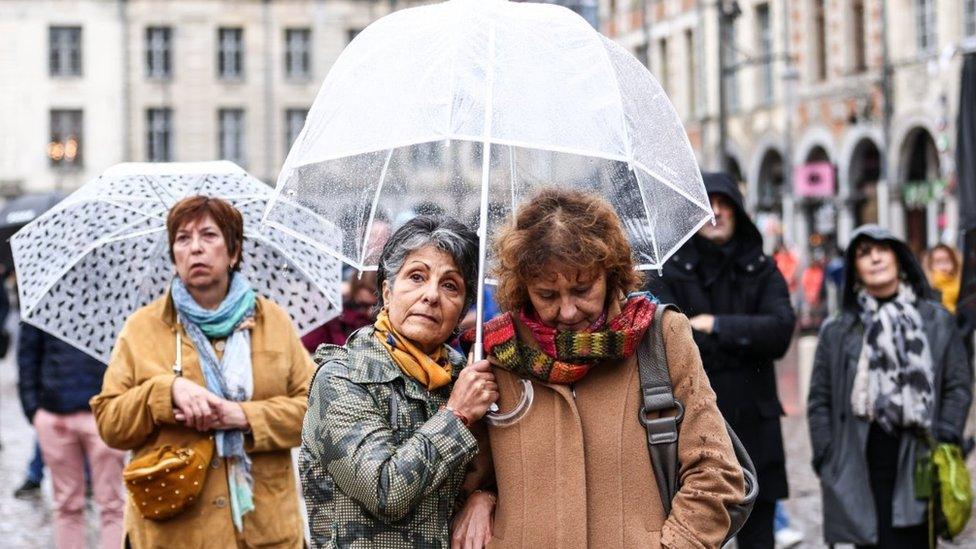
Hundreds of people watched the service on a screen in the rain
The suspect, named as 20-year-old Mohamed Mogouchkov, is a Russian national of Chechen origin. He shouted "Allahu Akbar", or "God is greatest", during last Friday's attack, eyewitnesses said.
He has been arrested and faces murder and terror charges.
Mohamed Mogouchkov was known to security services. As a former pupil at the school, he had alarmed teachers with his extremist language, reports said.
Police have also arrested several members of his family, including a brother aged 17, his mother, a sister and an uncle.
As European Union ministers met in Luxembourg on Thursday, EU migration commissioner Ylva Johansson told reporters: "It's important that those individuals that could cause a security threat to our citizens be returned forcefully, immediately."
She added: "We need to be more efficient, close the loopholes and be quicker on decisions to carry out returns."
French Interior Minister Gérald Darmanin said there was "still a bit naivety either in the institutions of some countries, or in the EU".
Footage shows the Brussels gunman, wearing orange, opening fire in street on Monday
Monday's attack in Brussels also highlighted problems with the EU's migration and asylum systems.
The Tunisian gunman, identified as Abdesalem Lassoued, shot dead two Swedish football fans on the evening of a Euro 2024 qualifier, before being killed by police the following morning.
Belgian authorities revealed on Thursday that the 45-year-old had tried and failed to get asylum in four European countries - Norway, Sweden, Italy and Belgium. Sweden's migration agency had earlier said he had served a prison sentence there between 2012 and 2014.
He had stayed in Belgium illegally after a bid for asylum was rejected in 2020.
A plan to make it mandatory for EU states to try to return people staying illegally has been stalled for years.
The war between Israel and Islamist group Hamas has led to fears of further violence from militants on the continent.
Italy is imposing controls on its border with Slovenia for 10 days because of concerns over national security and irregular migration. Slovenia will follow suit on its borders with Croatia and Hungary from Saturday.
Several other EU member states, including Austria, the Czech Republic and Poland, have already imposed checks in a bid to counter people-smuggling.
- Published13 October 2023
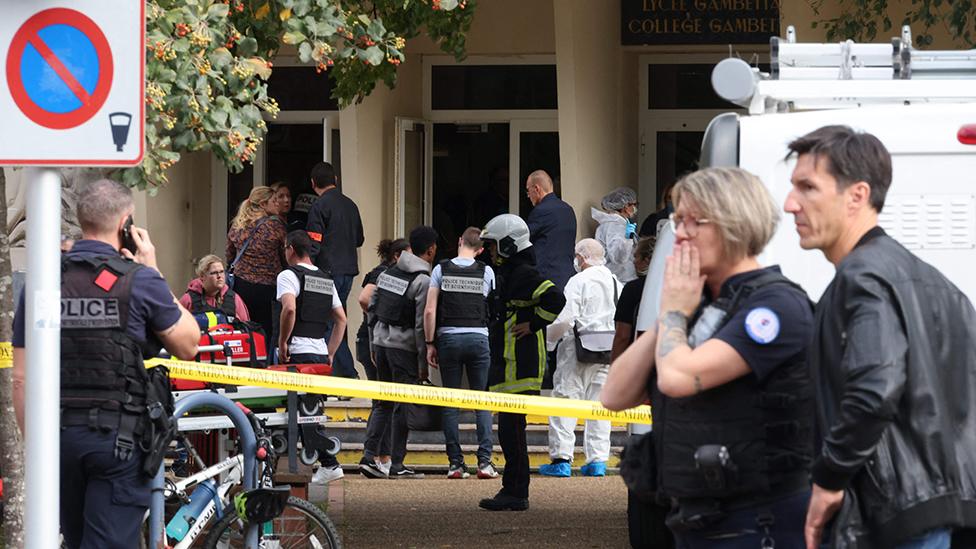
- Published4 October 2023
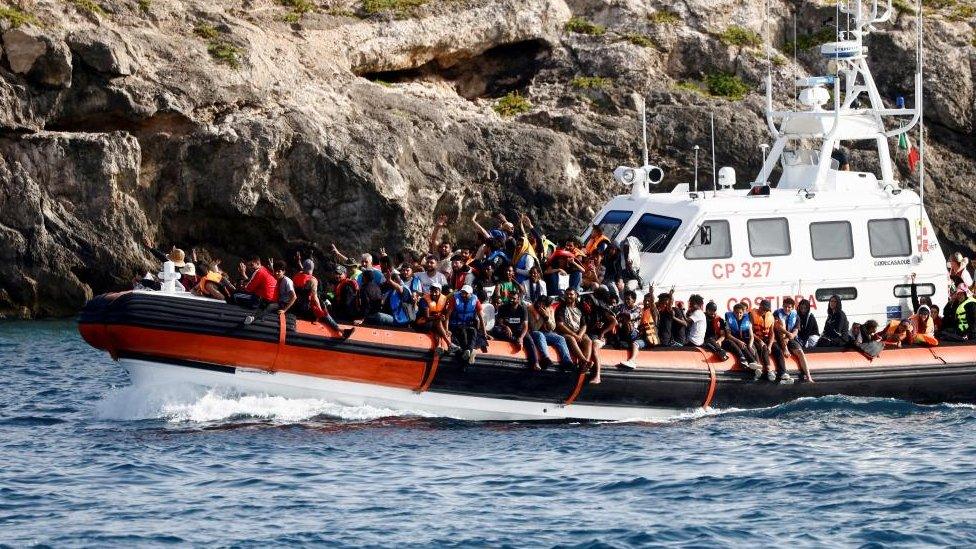
- Published13 October 2023
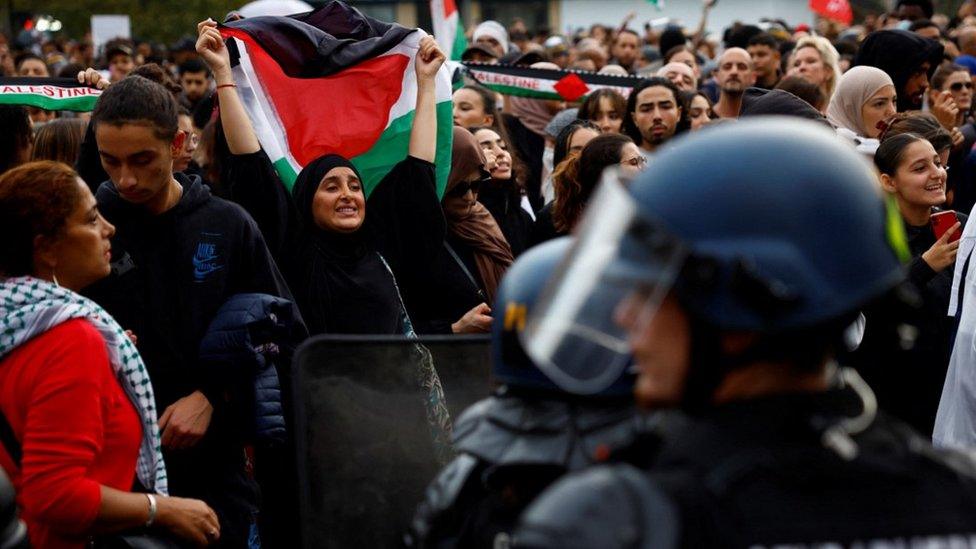
- Published17 October 2023
